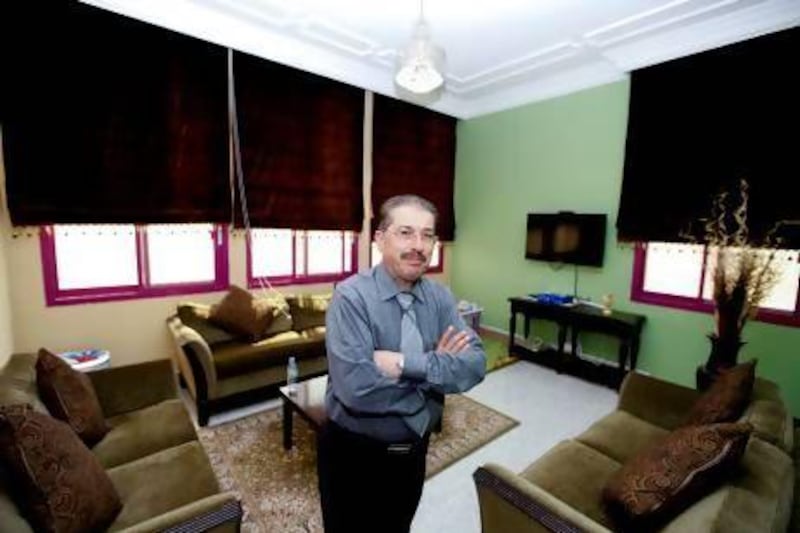SHARJAH // The number of child-abuse and neglect cases reported to the Sharjah Child Helpline increased by nearly a third last year.
The hotline registered 305 cases in 2012, compared with 239 in 2011. Ten involved sexual abuse, 88 physical abuse and 61 neglect. The rest were classified as emotional abuse or "other".
Sharjah was the first emirate to create a 24-hour hotline for parents, teachers, neighbours or children themselves to report ill-treatment. A team of social workers, psychologists and lawyers responds to the calls and refers them to police if needed.
A steady increase in cases since the hotline opened in 2007 is evidence of greater awareness, said Ahmed Al Tartoor of Sharjah Social Services.
"Before, when we started, the people did not like us," said Mr Al Tartoor, manager of the protection of children's rights administration. "Now they start to like us."
Mr Al Tartoor's department moved in January to a new building closer to central Sharjah. It has eight designated rooms for divorced parents who do not have custody to visit their children in a controlled environment. The department oversees 86 such cases.
"We are working for all the nationalities, not just for the locals," Mr Al Tartoor said.
When the department was on the outskirts of the city there were only four rooms for family visits. The visiting rooms are important because many divorces are rancorous, and the strife between parents can affect children, Mr Al Tartoor said.
"Yesterday there was a girl, 13 years, she told me: 'I have many headaches. I can't believe this talk. When I go to my father he is blaming, blaming, blaming, and when I go to my mother, I hear the same'," Mr Al Tartoor said. "I transferred her to a specialist psychologist here."
The new rooms are painted in bright colours and decorated like homes, with couches, chairs, televisions and games.
"They are seeing their babies in comfort," Mr Al Tartoor said.
The department also plans to increase the number of phone lines from four to six later this year.
The hotline received 1,888 calls last year, but many were information requests, repeat calls, wrong numbers or hang-ups. Last month there were 153 calls, but only 39 cases registered.
When callers report cases in other emirates, the hotline workers refer them to the appropriate authorities.
"We are receiving the calls from all the country and we are connecting with Dubai," Mr Al Tartoor said. "We are connecting with the Interior Ministry about the cases in Abu Dhabi … Ajman, Ras Al Khaimah."
Familial abuse cases are referred to the police if the children are believed to be in danger.
A dangerous case could involve "hard beating", maybe with a belt or an agal, Mr Al Tartoor said. In one case last year, a girl of about 5 was found with a broken hand.
"Her mother pushed her, she fell down on her hand," Mr Al Tartoor said. "This is also abuse."
In another case last week, a divorced mother who was visiting her seven-year-old son at home saw the father beating him. The father was referred to the police, who will take a written pledge from the father not to beat the child again, Mr Al Tartoor said.
If the child is not believed to be in danger, the department provides social services such as therapy to the family. The department can also connect needy families to food aid, school fee assistance or health services.
One mother called because she could not obtain a birth certificate for her child because she was unable to pay hospital fees.
"We went and paid for the hospital and brought the birth certificate," Mr Al Tartoor said.
The Sharjah Child Helpline number is 800-700.






